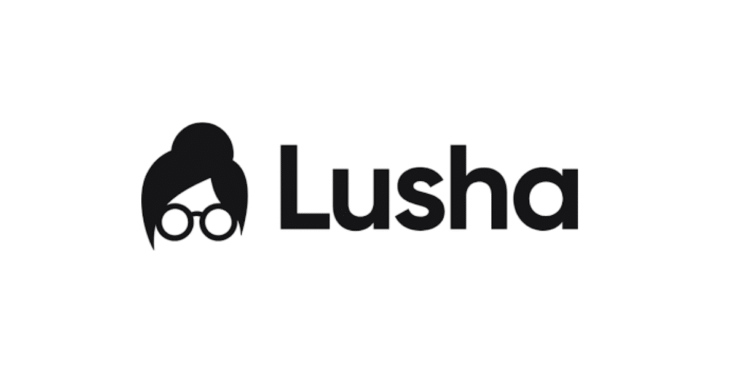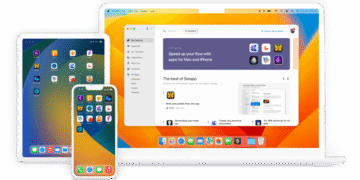What if you could instantly access verified contact details for any business prospect? Imagine cutting through the noise and connecting directly with decision-makers.
Modern sales teams face this challenge daily. Finding accurate data is often the biggest hurdle in the prospecting process.
This is where powerful tools step in. They provide reliable contact and company information to fuel your outreach efforts.
Lusha serves over 800,000 sales professionals from major companies. The platform offers access to 100 million business profiles and 15 million company records.
It revolutionizes how teams gather insights and engage leads. With strong data accuracy, businesses can connect with relevant prospects faster.
The tool streamlines the entire lead generation process. It helps sales professionals boost their efforts with confidence.
Key Takeaways
- Lusha provides accurate business contact information for sales teams
- The platform helps streamline lead generation and prospecting efforts
- It offers access to millions of verified company records and profiles
- Data accuracy is central to its value proposition for businesses
- The tool supports compliance with data privacy regulations
- It helps sales professionals connect with relevant prospects faster
- Major companies across industries use this platform for their sales process
What is Lusha? An AI-Powered Prospecting Tool Explained
Imagine having a digital assistant that finds the right business contacts for you. This tool began as a simple database for sales leads. It has grown into a sophisticated platform powered by artificial intelligence.
The system now offers more than just contact lists. It provides deep insights into companies and decision-makers. This evolution meets the complex needs of modern sales teams.
At its core, this platform serves as a massive B2B information resource. It contains over 165 million professional profiles and company records. Users access verified emails, phone numbers, and job details.
The AI capabilities set it apart from traditional databases. It automatically recommends fresh leads based on your criteria. The system also assists with email outreach through smart suggestions.
Integration happens seamlessly through browser extensions and APIs. Sales professionals can work within their existing workflows. This saves valuable time during the prospecting process.
Data collection combines multiple sources for accuracy. Community contributions supplement public records. This approach maintains a current and reliable database.
The platform serves various professionals beyond sales teams. Marketing specialists use it for targeted campaigns. Recruiters find it valuable for sourcing qualified candidates.
Adoption spans companies of all sizes and industries. From startups to enterprise organizations, teams leverage its capabilities. The free plan allows users to test the system before committing.
A unique credit system controls access to contact information. Users purchase credits to unlock specific data points. This flexible approach suits different budget levels and usage needs.
Lusha’s Core Feature Set for Modern Sales Teams
Modern prospecting requires more than just basic contact databases. The platform delivers advanced functionality that transforms how teams operate.
These capabilities work together to create a complete workflow. They help sales professionals discover and engage qualified leads effectively.
Contact & Company Database Search
The system provides access to over 160 million business contacts. Each profile contains dozens of data fields for comprehensive information.
Real-time data scraping happens through the Chrome extension. It pulls emails, phone numbers, and company details directly from LinkedIn.
Corporate websites also serve as valuable data sources. This approach ensures current and accurate contact information.
Intent Signals and Real-Time Alerts
Powerful intent monitoring uses Bombora’s Company Surge® technology. The system tracks custom keywords and topics for each prospect.
Sales teams receive alerts when companies show purchase signals. Intent scores help prioritize outreach efforts effectively.
This feature identifies warm leads ready for engagement. It transforms how teams approach their prospecting process.
AI Email Assistant and Outreach Sequences
The Engage feature includes built-in email sequencing capabilities. OpenAI powers the intelligent assistant for message creation.
It generates complete email sequences based on campaign goals. The system suggests subject lines and optimal send times.
Message variants maintain engagement while avoiding repetition. This automation saves considerable time for sales professionals.
AI Prospect Playlists for Automated Lead Discovery
Dynamic playlists automatically update with relevant qualified leads. They work from ideal customer profile criteria and seed contacts.
The system continuously suggests and adds similar prospects. This creates an ongoing stream of fresh opportunities.
These features integrate into a comprehensive prospecting workflow. While powerful, they differ from full sales engagement platforms.
The tool focuses specifically on data and intelligence aspects. Teams may need additional systems for complete campaign management.
Understanding Lusha’s Pricing Model and Plans
Budget planning for sales tools requires clear cost structures. Many platforms use traditional subscription models with fixed features. This system takes a different approach with flexible credit-based pricing.
The credit system lets teams pay only for the data they actually use. This can be more cost-effective than flat-rate plans for many businesses. Understanding how credits work helps you maximize your investment.
Credit System: How It Works and What It Costs
Every action in the platform consumes a specific number of credits. Revealing an email address costs 1 credit. Phone number reveals require 5 credits due to higher verification costs.
Exporting contacts to CSV or your CRM also uses 1 credit per export. This system ensures you only pay for the information you actually need. Teams can track credit usage through the dashboard interface.
Annual contracts offer the best value for regular users. Monthly plans provide flexibility for teams with changing needs. The credit system scales with your prospecting efforts throughout the year.
Free, Pro, Premium, and Scale Plan Breakdown
The Free plan offers 50 credits monthly with basic access. It works well for individual users testing the platform. Business teams typically need more robust solutions for their lead generation efforts.
Pro plan starts at $22.45 per month with annual billing. It includes 3,600-90,000 annual credits and three user seats. This tier suits small businesses and startups building their sales process.
Premium plan begins at $52.45 monthly with annual commitment. It provides 5 seats and advanced analytics features. Growing teams benefit from the additional capabilities and higher credit limits.
Scale plan offers custom pricing for enterprise companies. It includes team management features and priority support. Large organizations get tailored solutions for their specific data needs.
Credit-based pricing requires careful usage planning. Teams should estimate their monthly contact data requirements. This prevents unexpected costs while maintaining prospecting efforts.
Compare credit costs against traditional subscription platforms. The flexibility often provides better value for targeted outreach campaigns. Many users find the pay-per-use model aligns with actual business needs.
Analyzing Lusha Reviews: What Users Are Saying
Customer feedback reveals important insights about any sales intelligence platform. Real user experiences show how tools perform in daily workflows.
The platform maintains strong ratings across review sites. It earns 4.3 out of 5 stars on G2 from 1,500 reviews. Capterra shows a 4.1 rating based on 380 user evaluations.
These scores indicate generally positive user satisfaction. They reflect the tool’s effectiveness for sales and marketing teams.
Users consistently praise the clean, intuitive interface. The Chrome extension integrates seamlessly with LinkedIn profiles. This saves significant time during the prospecting process.
Data accuracy receives particular praise from many reviewers. They report high deliverability rates for emails and phone numbers. This accuracy directly impacts outreach success and lead generation.
Many users find the platform cost-effective compared to alternatives. The credit system allows teams to control their monthly spending. This flexibility suits various business sizes and needs.
Some negative feedback highlights data gaps in niche industries. Certain companies and job roles may have limited contact information. Users recommend verifying critical details before outreach.
The credit consumption rate draws criticism from some teams. They report credits deplete quickly during active prospecting months. Careful usage planning becomes essential for budget management.
Another common complaint involves single-channel limitations. The tool focuses primarily on email outreach capabilities. Teams needing multichannel campaigns must switch between platforms.
This creates workflow interruptions for comprehensive sales efforts. Many users supplement with additional tools for full campaign management.
Overall sentiment remains positive despite these limitations. Most reviewers consider it a reliable source for contact data. They appreciate the straightforward approach to finding business information.
The platform serves as an excellent starting point for prospecting. Users recommend it for teams needing accurate contact lists. It provides quality insights into companies and decision-makers.
Top Lusha Alternatives for Lead Generation and Outreach
The market for contact data tools includes several strong competitors with distinct advantages. Sales teams should evaluate multiple platforms to find the best fit. Different tools excel in various aspects of the sales process.
Reply.io stands out with its comprehensive multichannel approach. The platform features an AI sales agent called Jason. It manages sequences across email, LinkedIn, cloud calls, WhatsApp, and SMS.
Reply.io’s database contains over one billion contacts. This massive resource supports extensive outreach campaigns. The AI capabilities automate much of the communication process.
ZoomInfo serves enterprise clients with its extensive database. The platform offers deeper company intelligence and intent data. It typically comes with higher pricing than many alternatives.
Large organizations benefit from ZoomInfo’s comprehensive coverage. The tool provides detailed firmographic and technographic data. Teams get rich insights into target accounts.
Apollo.io focuses on complex sales workflows and lead management. The platform offers robust tracking and analytics features. It supports teams through the entire sales cycle.
Sales professionals appreciate Apollo’s comprehensive approach. The tool helps manage relationships with potential customers. It provides valuable data throughout the engagement process.
UpLead claims 95% data accuracy with real-time verification. The platform uses a credit system similar to Lusha. Many users find the pricing competitive and transparent.
UpLead’s verification process ensures high-quality contact information. This reduces bounce rates and improves outreach effectiveness. Teams spend less time validating data.
Other notable alternatives include Cognism and LeadIQ. These platforms offer various strengths for different use cases. Each has unique features that may suit specific business needs.
Selecting the right tool depends on several factors. Team size, volume requirements, and channel preferences matter. Budget constraints also influence the final decision.
Lusha works well for moderate-volume email outreach campaigns. Teams needing multichannel capabilities might prefer integrated platforms. The choice ultimately depends on specific sales requirements.
Integration capabilities vary across different platforms. Some tools work better with existing tech stacks than others. Sales teams should evaluate compatibility before committing.
Database coverage differs by industry and company size. Some platforms excel in certain sectors more than others. Researching industry-specific performance is recommended.
Pricing structures offer different value propositions. Credit-based systems provide flexibility for variable usage. Flat-rate plans suit teams with consistent monthly needs.
Sales professionals should trial multiple platforms when possible. Hands-on experience reveals which interface works best. The right tool can significantly boost outreach efforts.
Key Advantages of Using the Lusha Platform
Sales professionals need reliable tools that deliver accurate information quickly. The right platform can transform your outreach process and boost results.
High data accuracy stands out as a major benefit. This platform maintains better verification rates than many alternatives. Teams spend less time validating contact details before outreach.
Direct access to phone numbers and emails improves response rates. You connect with decision-makers faster. This efficiency saves valuable time during busy prospecting months.
The interface works smoothly for non-technical users. Sales teams adopt it quickly without extensive training. This ease of use supports faster implementation across organizations.
Regular updates keep company data fresh and relevant. The system continuously refreshes contact information. You always work with current details for your target accounts.
Full compliance with GDPR and CCPA standards provides peace of mind. Businesses handle data responsibly while maintaining legal requirements. This certification matters for companies operating globally.
Cost efficiency makes it accessible for various team sizes. The credit system offers flexibility compared to fixed enterprise plans. Small businesses find particular value in this pricing approach.
The Chrome extension integrates directly with LinkedIn profiles. Sales professionals gather information without switching between platforms. This seamless experience enhances daily workflow efficiency.
AI-powered features deliver intelligent lead recommendations. The system suggests prospects based on your ideal customer profile. These automated insights support continuous lead generation efforts.
Different business sizes benefit from its scalable nature. Startups and growth-focused teams find it particularly useful. The platform adapts to changing needs as companies expand.
Easy onboarding begins with a generous free plan. New users test the system before committing financially. This approach reduces risk during the evaluation process.
Integration capabilities connect with popular CRM platforms. Salesforce, HubSpot, and Zoho users enjoy seamless data transfer. These connections streamline the entire sales process.
Intent signals help prioritize outreach to warm leads. The system identifies companies showing purchase readiness. Sales teams focus efforts where they matter most.
Overall, these advantages create a powerful prospecting tool. Teams gain confidence in their contact data quality. This reliability translates into better sales results.
Potential Drawbacks and Considerations
Every sales intelligence tool comes with certain limitations that teams must evaluate. While this platform offers valuable features, several factors require careful consideration before implementation.
Data accuracy rates fall slightly below some competing platforms. While generally reliable, contact information shows 80-90% accuracy versus UpLead’s 95% claim. This difference matters for teams requiring maximum deliverability.
Phone numbers and email addresses may occasionally contain errors. Sales professionals should verify critical details before important outreach campaigns.
The database size presents another consideration for large organizations. With 100 million profiles, it trails enterprise alternatives like ZoomInfo. Companies targeting broad markets might find coverage limitations.
Geographical coverage shows particular constraints in United States markets. Some regions and industries have sparser data than others. Teams focusing on specific areas should test coverage first.
Cost management becomes crucial with the credit-based system. Uncontrolled usage can quickly drain monthly budgets. Sales teams must track credit consumption during active prospecting months.
The platform relies heavily on LinkedIn for contact details. This dependency creates potential gaps for professionals not active on the network. Some job roles and industries may have limited representation.
Enterprise-level companies often present data challenges. Fortune 1000 firms frequently have incomplete contact lists. Sales teams targeting large corporations might need supplemental resources.
Niche industries sometimes show significant information gaps. Specialized sectors may lack comprehensive company details. Marketing teams in these fields should verify platform suitability.
Workflow integration requires tool-switching for comprehensive sales efforts. The platform focuses primarily on email outreach without multichannel capabilities. Teams must use additional platforms for full campaign management.
This separation creates interruptions in the sales process. Professionals lose time moving between different interfaces. Complex pipelines suffer from these workflow breaks.
High-volume operations may find the platform less suitable. The credit system becomes expensive for large-scale lead generation. Businesses with massive prospecting needs should evaluate cost efficiency.
Integration capabilities, while good, have some limitations. Certain CRM platforms work better than others. Teams should verify compatibility with their existing tech stack.
Intent data and insights remain more limited than specialized platforms. Companies needing deep account intelligence might require additional tools. The platform serves best as a contact information resource.
These considerations help teams make informed decisions about implementation. Understanding limitations prevents unexpected challenges during usage. Proper planning ensures the tool matches specific business needs.
Who is Lusha Best Suited For?
Finding the right sales intelligence tool depends on your specific business needs and goals. The platform serves particular user profiles exceptionally well.
Individual entrepreneurs and freelancers benefit from the free plan. They get 50 credits each month for basic prospecting needs. This helps small operations access quality contact data without financial commitment.
Small to medium-sized businesses find excellent value here. The credit system matches their variable monthly usage patterns. They pay only for the information they actually need.
Sales teams with moderate lead volumes achieve great results. The platform supports email-focused outreach strategies effectively. Teams get accurate contact lists for their campaigns.
Growth-focused organizations use it for sales acceleration. The tool provides fresh leads consistently. This helps expanding companies maintain their momentum.
Digitally savvy teams across sectors appreciate the interface. The Chrome extension integrates smoothly with their workflow. This saves valuable time during prospecting efforts.
Marketing professionals use it for contact enrichment. They verify email addresses and phone numbers for campaigns. This improves their outreach accuracy significantly.
Recruiting professionals source candidate information efficiently. They find job details and contact data for talent acquisition. The platform supports their hiring process.
Companies prioritizing compliance benefit from certified data handling. The platform follows GDPR and CCPA standards carefully. Businesses maintain legal requirements while accessing information.
Teams wanting quick implementation enjoy the easy setup. No sales demos or complex configurations are required. Users start gathering insights immediately.
Organizations with budget constraints find cost-effective solutions. The credit system beats expensive enterprise tools for many. They get quality data without overspending.
Each user profile finds specific advantages with this approach. The platform matches various business sizes and needs effectively. Teams should evaluate their requirements before choosing.
Conclusion: Final Verdict on Lusha’s Value Proposition
Selecting the right prospecting tool requires matching capabilities to your team’s specific needs. This platform delivers exceptional value for email-focused outreach and contact discovery.
Its Chrome extension and accurate data make lead generation efficient. Sales teams get verified emails and phone numbers quickly. The intent signals help prioritize warm prospects effectively.
However, the tool solves only part of the sales puzzle. It works best when integrated with comprehensive automation platforms. Teams needing multichannel campaigns should consider alternatives.
Small to medium businesses find particular value here. The credit system matches variable monthly usage patterns. Implementation happens quickly without complex setups.
For accurate contact data and streamlined email outreach, this platform excels. Evaluate your team’s specific workflow needs before choosing.
FAQ
How does the credit system work for contact data access?
The platform uses a credit-based model where each action, like viewing a phone number or email, costs credits. Plans offer different credit amounts per month, with costs varying by tier.
What is the accuracy rate for phone numbers and emails?
The tool boasts high accuracy rates, often above 90%, for direct dials and verified email addresses, helping sales teams connect with the right prospects efficiently.
Can I integrate this prospecting tool with my CRM?
Yes, it offers seamless integrations with popular CRM platforms and sales engagement tools, streamlining your outreach process and saving valuable time.
Are there any free options available for users?
A free plan is available, offering limited credits each month for basic contact and company data searches, ideal for individual users testing the platform.
How does the AI assist with email outreach efforts?
The AI email assistant helps craft personalized messages, while automated sequences allow teams to scale their prospecting efforts with tailored follow-ups.
What kind of intent signals does the platform provide?
It delivers real-time alerts on prospect activity, such as website visits or content engagement, giving sales teams timely insights to prioritize leads.
Who benefits most from using this lead generation platform?
Sales and marketing professionals, especially those in B2B roles, find it invaluable for building contact lists and accelerating their prospecting process.






